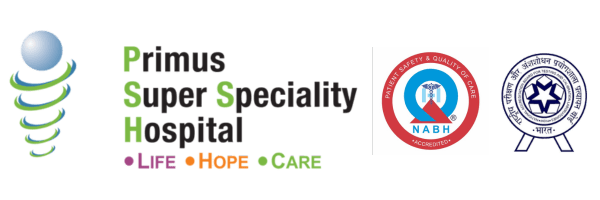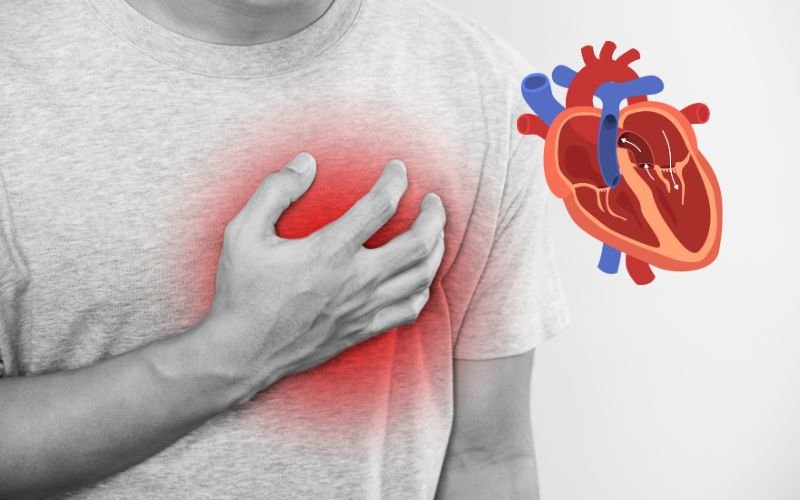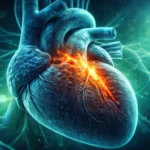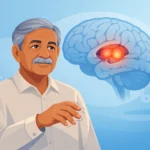Your heart is the body’s hardest-working muscle. It pumps blood to every organ constantly. Sometimes, the heart cannot keep up with this demand easily. This serious condition is called congestive cardiac failure. It affects millions of people globally, sadly. The good news is that medical science offers great hope now. Early diagnosis and modern treatment can manage the condition well. This article explains the condition simply. We detail the comprehensive treatment options available in Delhi. Knowing your options helps you take control of your heart health fast.
What Is Congestive Cardiac Failure?
To start, let us clearly define the disease. The congestive cardiac failure definition describes a chronic condition well. Here, the heart cannot pump blood efficiently enough. The term “congestive” refers to the fluid backup. When the heart pumps weakly, blood returns to the heart slowly. This slow return causes fluid to leak out of vessels easily. This fluid builds up in the lungs, legs, and other tissues quickly.
Symptoms of Congestive Cardiac Failure
It is important to know the signs of this condition. Knowing the congestive cardiac failure symptoms means seeking help faster.
- Shortness of Breath: This is often the first symptom noticed. It occurs during exercise or even while resting quietly.
- Swelling (Edema): Swelling in the legs, ankles, and feet is very common. The fluid congestion is easily visible there.
- Chronic Fatigue: Feeling constantly tired and weak, even after good rest.
- Rapid Heartbeat: The heart tries to compensate by beating faster only.
Medicines for congestive cardiac failure
Modern congestive cardiac failure treatment relies heavily on medication. These drugs aim to reduce the heart’s workload greatly. They also help remove excess fluid from the body fast.
Diuretics and Fluid Management
Diuretics are often called “water pills” sometimes. They help kidneys flush out salt and excess water quickly. This process reduces the fluid buildup in the lungs and legs greatly. Reducing this congestion eases the shortness of breath easily.
Improving Heart Function
Several classes of drugs work to improve the heart’s pumping strength.
- ACE Inhibitors and ARBs: These medicines widen blood vessels quickly. This lowers blood pressure and makes pumping easier for the heart.
- Beta-Blockers: These slow a rapid heart rate down. They reduce the amount of stress hormones released consistently
- Cardiac glycosides congestive heart failure: Drugs like Digoxin are sometimes used. They increase the force of the heart’s contractions strongly. This helps the heart pump more blood with each beat effectively.
Devices and Procedures
For moderate to severe cases medical devices can offer hope. These procedures are commonly available at a good Heart hospital in Delhi
Pacemakers and Defibrillators
Some patients need specialized devices implanted.
- Cardiac Resynchronization Therapy (CRT): This is a special type of pacemaker. It helps the left and right ventricles beat together perfectly. This coordinated rhythm improves the overall pumping action greatly.
- Implantable Cardioverter-Defibrillator (ICD): This device watches for dangerous heart rhythms always. It delivers an electrical shock to correct fatal arrhythmias immediately.
Vascular and Structural Repairs
Sometimes, the cause of the failure can be corrected. Blocked arteries or faulty valves might be the root problem often. Procedures like angioplasty or valve replacement can restore function greatly. These are complex surgeries performed by a skilled Cardiology specialist in Delhi.
Consult your heart Doctor in Delhi
Medication alone is not enough for successful management. Changes in daily habits are necessary for better health. The patient must actively partner with their doctor completely.
- Dietary Changes: Limiting salt intake is extremely important now. Salt causes the body to retain more water easily. A low-sodium diet directly combats the fluid congestion problem.
- Fluid Monitoring: Doctors often ask patients to limit fluid intake slightly. Tracking daily water consumption is essential to prevent overload.
- Regular Exercise: Gentle, doctor-approved exercise strengthens the heart muscle over time. Walking is a great way to start slowly.
- Monitoring Weight: Sudden weight gain can signal fluid retention rapidly. Patients must weigh themselves daily and report sudden increases immediately.
Managing congestive cardiac failure is a lifelong commitment. It requires excellent medical support and patient diligence constantly. Modern congestive cardiac failure treatment offers very effective ways to control the condition well. If you are seeking specialized care for your heart condition, choose wisely now. Primus Hospitals stands as a leading Cardiology hospital in Delhi. Our team of experts provides advanced cardiac solutions now. We can guide you through every step of your journey toward a healthier heart easily
FAQs
No, they are different conditions entirely. A heart attack is a sudden event when blood flow stops. Congestive cardiac failure is a chronic weakening of the heart muscle only.
Seek immediate medical attention without any delay. Sudden worsening, especially severe breathlessness, is a medical emergency now. Go to the nearest Heart hospital in Delhi quickly.
Heart failure is a chronic condition usually. Most patients require long-term, continuous medication management now. Never stop your drugs without talking to your doctor first.
No, they help manage the symptoms only. They increase the heart’s pumping force effectively. They are part of a larger treatment plan, not a full cure for the disease.
Lifestyle changes can significantly improve quality of life greatly. They can slow the progression of the disease well. They cannot fully reverse the underlying damage usually.













